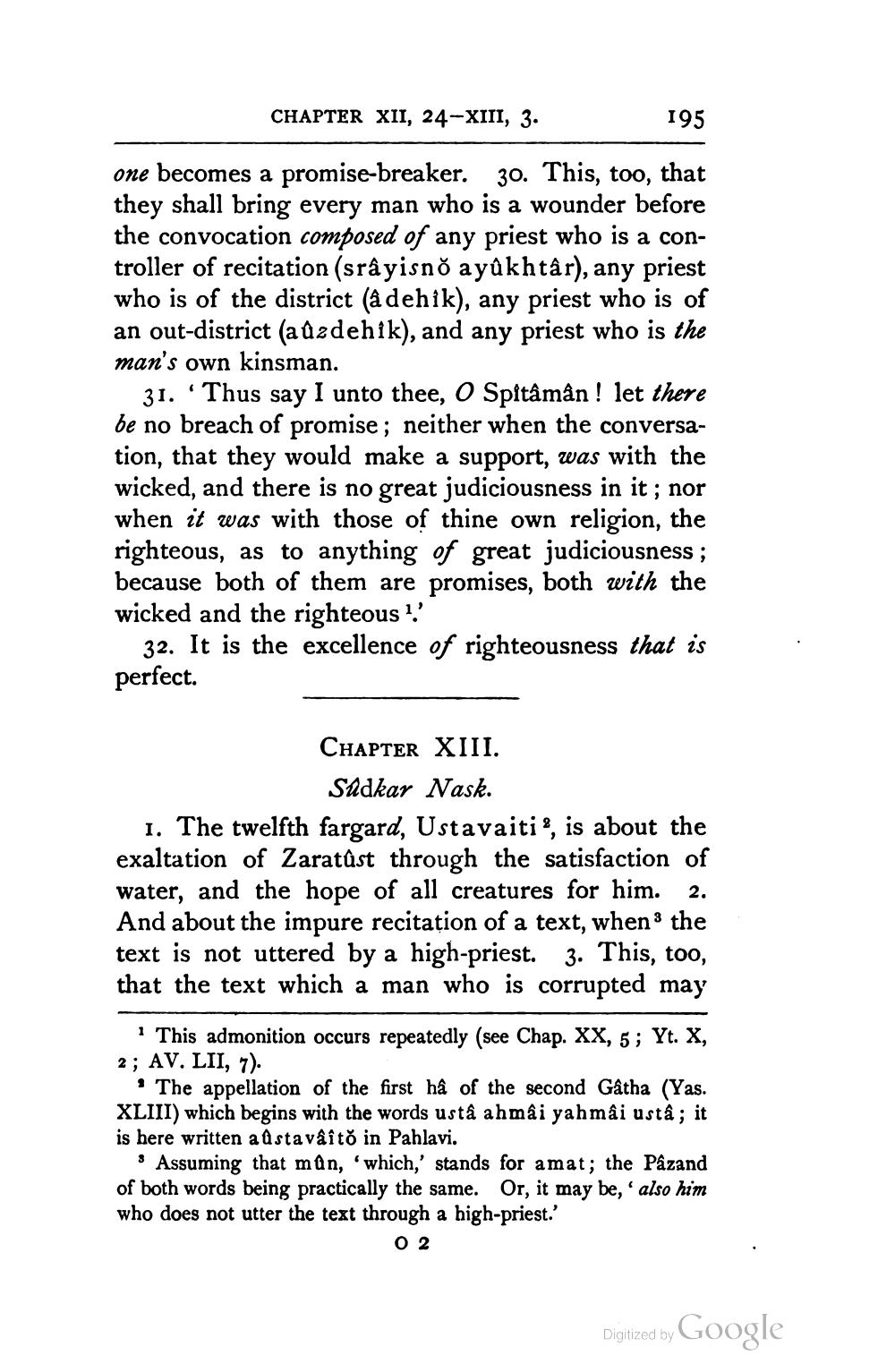________________
CHAPTER XII, 24-XIII, 3.
195
one becomes a promise-breaker. 30. This, too, that they shall bring every man who is a wounder before the convocation composed of any priest who is a controller of recitation (srâyisnõ ayûkhtâr), any priest who is of the district (a dehik), any priest who is of an out-district (alladehik), and any priest who is the man's own kinsman.
31. 'Thus say I unto thee, O Spitâmân! let there be no breach of promise; neither when the conversation, that they would make a support, was with the wicked, and there is no great judiciousness in it ; nor when it was with those of thine own religion, the righteous, as to anything of great judiciousness; because both of them are promises, both with the wicked and the righteous ?.'
32. It is the excellence of righteousness that is perfect.
CHAPTER XIII.
Sadkar Nask. 1. The twelfth fargard, Ustavaiti?, is about the exaltation of Zaratûst through the satisfaction of water, and the hope of all creatures for him. 2. And about the impure recitation of a text, when the text is not uttered by a high-priest. 3. This, too, that the text which a man who is corrupted may
This admonition occurs repeatedly (see Chap. XX, 5; Yt. X, 2; AV. LII, 7).
The appellation of the first ha of the second Gatha (Yas. XLIII) which begins with the words usta ahmâi yahmâi usta; it is here written allstaväito in Pahlavi.
Assuming that man, 'which,' stands for amat; the Pazand of both words being practically the same. Or, it may be,' also him who does not utter the text through a high-priest.'
O 2
Digitized by Google




